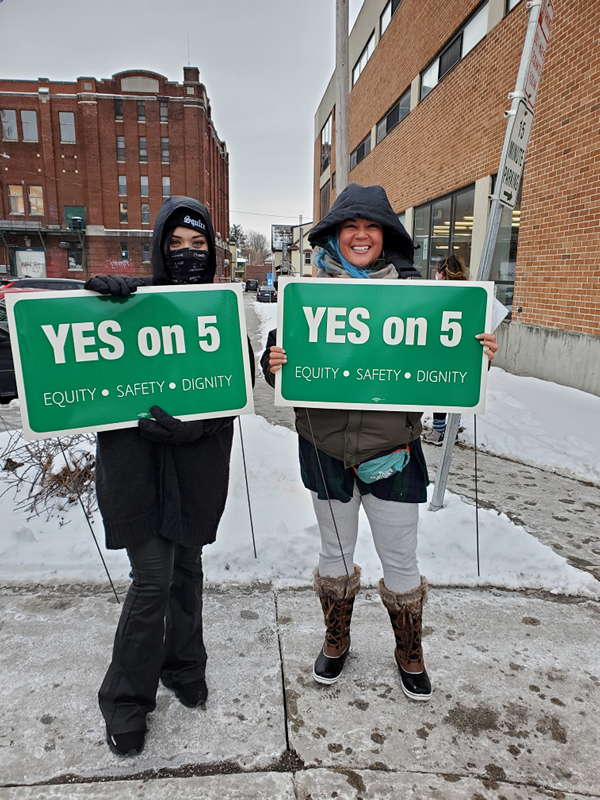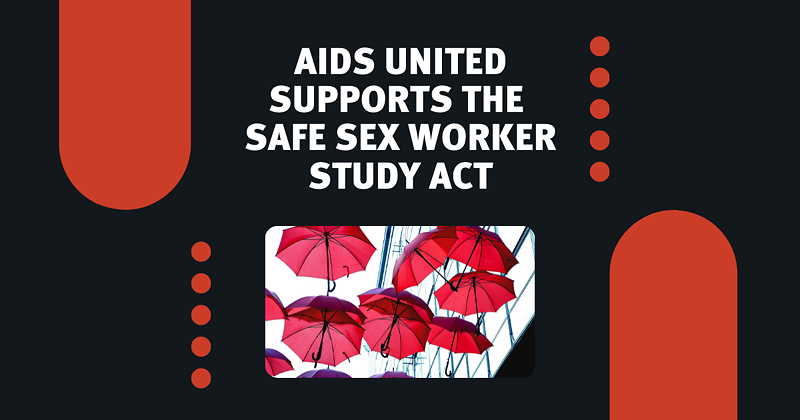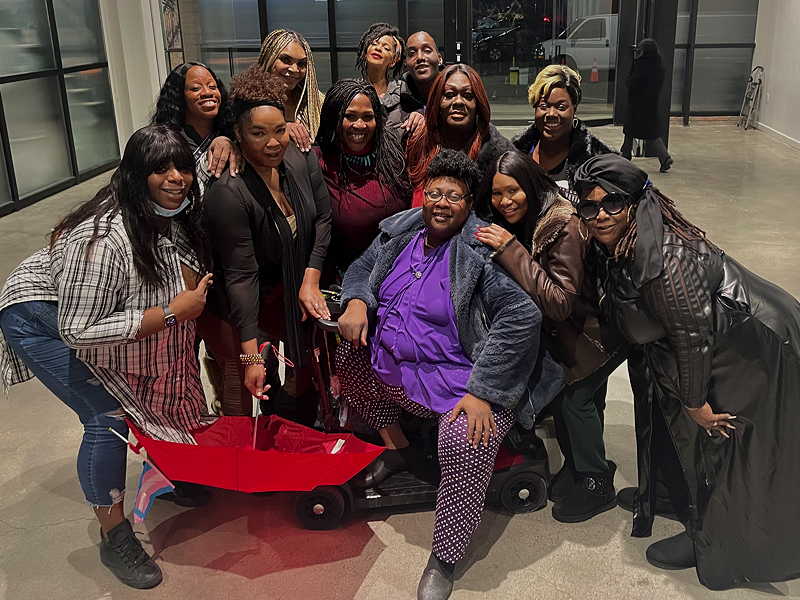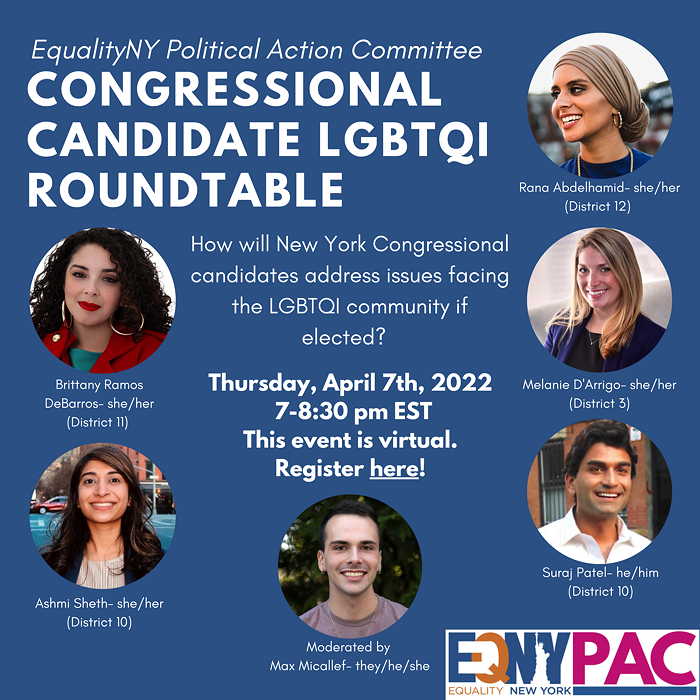February 27, 2022
As a society, we’ve never been very good at talking about sex, John Oliver points out in the February 27th episode of Last Week Tonight. If we want to craft legislation and policies that protect human rights, public health, and the safety of all communities equally, we need to do better. The show’s recent segment dives headfirst into the issue of sex work decriminalization. “Everything about the way we regulate sex work in this country is confusing and counter-productive,” says Oliver. It’s either “demonizing, patronizing, or just plain wrong.” He goes on to analyze the convoluted contradictions inherent in criminalizing sex workers in order to “save” them. Central to Oliver’s argument: instead of trying to project a discriminatory and misogynistic moral framework onto those engaging in commercial sex, “we need to be talking constructively about how to make [sex work] safer in every possible way.”
DSW staff attorney and legal director, Rebecca Cleary and Melissa Broudo provided background research to the producers of the show, resulting in a poignant and hilarious analysis that unflinchingly addresses the stigma and misconceptions around sexual labor. Many members of law enforcement and lawmakers oppose decriminalization because they believe that sex work is inherently exploitative and that decriminalization will allow trafficking in commercial sex to proliferate. But sex workers are not a monolith — many different kinds of people engage in commercial sex for a variety of reasons. To enact the most effective, impactful policies for a deeply diverse population, we must consult with and listen to impacted communities. Sex work is work; it’s how people support themselves and their families, the same as any other job. And sex workers are people with thoughts and opinions on their own situations and they overwhelmingly support the decriminalization of sex work because it makes their work safe.
In the segment, one law enforcement officer said that sex workers often describe being arrested as having “saved [their] life.” Oliver makes the perhaps obvious point that if the best option we have to help someone is to arrest them, that poses a system-wide problem. No one should be forced to participate in sex work against their will, just as no one should be forced to do any form of labor against their will. But saddling someone with a criminal record is a far cry from help, particularly when repeated arrests can result in felony convictions in certain states.
Many of these arrests occur during prostitution stings in which police pose as clients and then arrest people who agree to have sex with them. “It’s no wonder many sex workers have trouble regarding the police as their saviors especially as cops have a reputation for acting violently or inappropriately during stings,” said Oliver. “A couple of years ago in Arizona, a federal agency engaged in 17 sexual encounters with women working in massage parlors as part of an investigation, disgustingly code-named ‘Operation Asian Touch’. And that’s not uncommon. Because in many states it is not specifically illegal for police officers to have sex with sex workers during a sting operation. And in some cases, police have protested efforts to ban the practice. This is both grotesque and also a bit ironic because what they’re fundamentally arguing there is that they should be able to have sex for their jobs legally in order to stop people having sex for their jobs.”
Even without these abhorrent policies, the way that sex work is policed in this U.S. is incredibly discriminatory, particularly along the lines of race, gender, and gender expression. The recently repealed loitering for the purpose of prostitution offense in New York State was used to target, arrest, and harass individuals for legal activities like talking to passersby or wearing certain clothing or the basis of “looking like” a sex worker. The law was colloquially termed “the ban on Walking While Trans” because of the disproportionate number of trans women targeted for the crime. 88% of people arrested under this statute from 2009-2019 were women of color. From 2016 to 2020, almost everyone arrested for prostitution-related crimes in NY was non-white. In other cities, workers are arrested for carrying condoms, leading many sex workers to go without, putting their lives at risk.
The episode digs into many more examples of the irony and, in some cases, the idiocy of the laws that govern sex work in the U.S. Having conversations about making sex work safer is almost impossible when it is continually conflated with human trafficking. Human trafficking is an egregious offense where “any number north of zero is clearly terrible,” but reports of millions of people allegedly trafficked into commercial sex each year are consistently debunked by experts. 80% of trafficking cases occur in sectors outside of commercial sex. However, because of conflation and a disproportionate focus on prostitution as trafficking, advocates and service providers report that non-sexual labor trafficking cases often go unreported and unprosecuted. Some states have even codified this harmful conflation into law, replacing the word prostitution with trafficking. Alaska used this provision to prosecute a woman for trafficking herself.
While the segment engages audience members because of its witty pointedness, the reality of these policies for impacted communities is much less amusing. Reducing all sex work to exploitation removes the voices, agency, and humanity of the individuals who engage in it, which lawmakers use as an excuse to ignore sex workers in crafting policies.
An outlier in this is New Zealand, which decriminalized consensual adult, sex work in 2013. Under the 2013 Prostitution Reform Act, commercial sex is no longer a crime, so long as it is consensual. This allows sex workers access to unemployment benefits, healthcare, and other fundamental rights. Under the law, sex workers have successfully sued for sexual harassment and assault they experienced while working. “It is a human rights-centered approach,” says Oliver, “that seems to be working.”
The episode acknowledges that we don’t have all the answers yet. “There are good-faith disagreements to be had over the finer points of decriminalization policy,” Oliver notes. “But if we basically agree, as I hope we do, that making sex work safer is a priority, it is the direction to strive toward.”
DSW was honored to be included in the research of this episode and encouraged to have this issue discussed on such a well-known platform. If you haven’t yet viewed the episode, we highly recommend it for some heavy-hitting truth bombs and belly-laughs.

(HBO, 2022)
DSW Newsletter #34 (March 2022)
Burlington, Vermont Votes To Remove Language That Discriminates Against Sex Workers From City Charter

Members of Congress Introduce Bill To Study the Impact of SESTA/FOSTA

John Oliver Dissects Sex Work Criminalization and How We Can Do Better

Honoring International Sex Worker Rights Day

Save the Dates!

